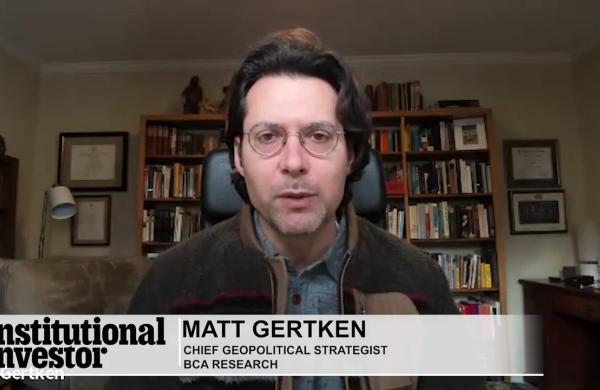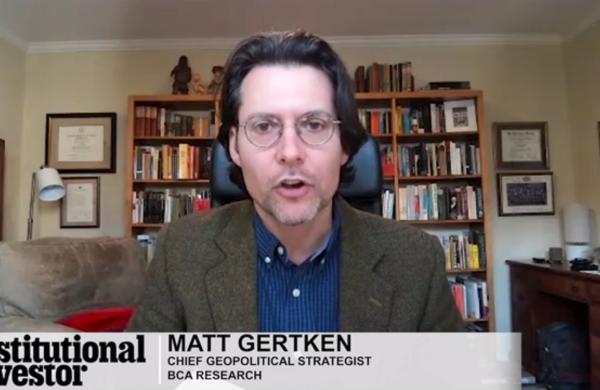Fidelity International investment director Frederic de Merode has heard two queries from his European equity clients more often than any others: "Will it get worse?" and "When will it get better?" For most of the past three years, the correct answers have been: "Yes" and "Not anytime soon."
Analysts at major buy-side firms like de Merode's have struggled to pick winning stocks -- and answer tough customer questions -- in one of the most horrid environments in recent memory. Europe suffered through its third consecutive losing year in 2002, as the Dow Jones Euro Stoxx 600 index lost one third of its already slimmed market capitalization. And the slump continues. Even as equity markets around the world rallied last month, Europe's major averages, now afflicted by the rising euro, remained 5 percent underwater for 2003.
European markets continue to struggle with the hangover of scandals at once high-flying companies like Vivendi Universal, which ousted CEO Jean-Marie Messier last July when his acquisition spree ended in a debt and liquidity crisis, and Royal Ahold, where CEO Cees van der Hoeven stepped down in February after a profit overstatement of $500 million was revealed. Some disgruntled fund shareholders have thrown in the towel and shifted to bonds.
Buy-side researchers must cope with these problems with less help from their counterparts at big brokerage firms. Under intense regulatory scrutiny and desperate to cut costs, investment banks have reduced their research staffs and thinned out their European coverage lists. "The sell side has fewer junior people, so less information is being generated," says François Brault, a research analyst at Crédit Agricole Asset Management. "We have to be better at gathering information in a more efficient manner." Brault's efficiency is not in doubt. A semiconductors and telecommunications specialist, he is one of 28 analysts selected to Institutional Investor's European Best of the Buy Side, our annual list of the top researchers at asset management firms. He joins a distinguished group of researchers that includes repeat winners like Gerald du Manoir of Capital International Research, Robert von Rekowsky of Fidelity and Hendrik Hijink of Putnam Investments, as well as such newcomers as Ingrid Allemand of Crédit Lyonnais Asset Management, Julian Gould of Schroder Investment Management and Jürgen Heinz of West AM.
All face an unenviable and increasingly solitary challenge. Working in a grim market with less backup is tough, but it also gives talented buy-side analysts the chance to strut their stuff. For instance, back in July Fidelity's Harlan Carere, a semiconductors and telecom equipment analyst (another repeat winner), put an in-house buy on Finnish mobile phone giant Nokia Corp. at EUR11, arguing that it was oversold. By early January, when Carere lowered his rating, Nokia shares had jumped to EUR15, a 36 percent gain (they've since fallen to EUR14).
In selecting our winners, we polled brokerage analysts who received votes in the 2003 All-Europe Research Team. Based on their votes, we chose the 28 most accomplished researchers of European equities. As in previous years, the group comes from a wide variety of firms, ranging from Capital Research Co. and its affiliate Capital International Research to Crédit Agricole to the Government of Singapore Investment Corp. to Morley Fund Management, among others.
At all of these firms, "helping investors keep the faith is the biggest challenge," says Fidelity's de Merode. Leading European insurers like Royal & SunAlliance, Scottish Life and Swiss Life have slashed their equity holdings in the past year, and the fear is that many more will follow. The equity commitment of Europe's beleaguered pension funds is similarly wobbly. At their recent rate of decline, the funds will have about 50 percent of their assets in stocks by 2006, down from a peak of 80 percent in 1993, says WM Mercer head Lesley Abbott.
To stem the outflow, money managers have had to be creative. A number have rejiggered their external and internal communications systems. Fidelity, for example, has emphasized quick, accurate responses to client queries. The mutual fund giant has folded its own database team into its research group and combined some of their information systems. This is meant to give analysts the most up-to-the-minute metrics when answering customer calls. Schroder pan-European research chief Nick Anderson has upped the number of meetings between the firm's analysts and portfolio managers, to try to generate new investment ideas and tighten the groups' relationships.
Corporate pension funds are not only buying less stock, their liabilities have made investors skittish. J.P. Morgan Fleming Asset Management's Steven Ho, a repeat member of our Best of the Buy Side roster, says he has steered clear of companies whose pension schemes are complicated and easily subject to misinterpretation. Although Ho won't cite examples, he agrees that Germany's ThyssenKrupp fits the pattern. Standard & Poor's recently downgraded the steelmaker to junk status, based on its high debt-equity ratio and uncertainties about its pension structure. Because German pensions aren't tied to specific assets and are viewed as a debt obligation, Ho explains, they're often misunderstood. That's one reason ThyssenKrupp underperformed the weak market by 20 percentage points last year.
Trying to turn this market problem into an opportunity, Ian Hodges, head of European analysts for Barclays Private Clients, says his firm is working to develop a better methodology to analyze pension liabilities. For now, Barclays avoids companies with big obligations. But Hodges thinks that "there might be the opportunity to buy a defensive stock very cheaply because of a pension fund liability" that the market is overreacting to.
Every research director at a big fund firm, many of which are facing their own profit pressures, is grappling with just how far he's going to go to pick up the slack. "We've asked ourselves, 'Does this mean we have to increase our resources?'" says Robert Alster, who is Alliance Capital's head of European growth research and a repeat member of our buy-side ranking, for his coverage of autos and auto parts, engineering and machinery. "So far the answer is, 'No, not right now.'" Other firms are moving -- if gingerly -- into the void left by sell-side houses. Schroder, says research chief Anderson, is trying to develop its own in-house economic modeling systems to replace brokerage data that it is no longer satisfied with. Buy-side analysts say they're meeting more often with managers at the companies they cover -- an intermediary role traditionally played by sell-siders. Crédit Agricole, says Brault, is utilizing Webcasts to communicate with companies, something the firm didn't do at all three years ago.
Portfolio managers are likely to be doing more of these chores in the future. In April the U.K.'s Financial Services Authority released a consultation paper that contains proposals to change the nature of the relationships between the buy and sell side. Among them: that fund managers' cost of acquiring services from brokerage firms beyond trade execution -- including investment research -- should not be automatically passed on to customers. This unbundling proposal, says FSA spokesman Robin Gordon-Walker, isn't intended to make the investment firms pay hard cash for every brokerage service but is designed to let their clients see what they're paying for. The measure still must go through a long review process. But if it does become law, it would have an immediate impact on buy- and sell-side firms alike: "We would reexamine our soft-dollar expenditures, decide which ones we really want, and see if there's an alternative to funding those we want," says Alliance Capital's Alster. One key service whose cost would have to be evaluated: brokerage research.
There is, of course, opportunity in the investment banking cutbacks. It's a chance to scarf up top research talent and bolster buy-side analysis. "It's a buyers' market, and it provides an ideal opportunity to fill in the gaps," says Schroder's Anderson. "Whenever we have an opening, the CVs come flying. We don't even have to use a headhunter any more." Five years ago one third of Schroder's analysts had less than two years' experience, and just 10 percent had more than ten years'. Today all analysts have at least two years' experience, and one third have more than ten.
Shifts in the supply and demand for research (and researchers) suggest that the market is already adapting to the pullback of major brokerages. Many displaced sell-side analysts are setting up their own independent research shops, hoping to fill the void. "In the past four months, I have seen more people knocking on our door with independent offers than I've seen in the past three years," says Alster. Their hope: that the U.K.'s FSA will follow the U.S. Securities and Exchange Commission's lead by promoting third-party research.
None of buy-side analysts' recent travails would loom so large if the European market looked like it would end its three-year losing streak. That's still a tough call. Large international health care and information technology companies seem to be turning a corner, says Fidelity's de Merode, who is further encouraged because first-quarter earnings at many U.S. companies exceeded expectations. "That's causing a lot of optimism in Europe," he says. That said, he's not ready to tell clients the bear market is over.
Ingrid Allemand
CRÉDIT LYONNAIS ASSET MGMT
Telecommunications
Charles Allen
CRÉDIT AGRICOLE ASSET MGMT
Food & Drug Chains, General
Retailing, Business & Employment Services
David Allen
PIONEER INVESTMENTS
Oil & Gas
Robert Alster
ALLIANCE CAPITAL
Autos & Auto Parts, Engineering & Machinery
Robin Asquith
J.P. MORGAN FLEMING ASSET MGMT
Food Producers, Beverages
François Brault
CRÉDIT AGRICOLE ASSET MGMT
Semiconductors, Telecommunications
Harlan Carere
FIDELITY INVESTMENTS
Semiconductors, Telecommunications Equipment
Jacques Chazelle
CRÉDIT AGRICOLE ASSET MGMT
Luxury Goods, Food & Drug Chains, General Retailing
Gerald du Manoir
CAPITAL INTERNATIONAL RESEARCH
Household & Personal Care Products, Luxury Goods,
Beverages
Paul Flynn
CAPITAL RESEARCH CO.
Autos & Auto Parts, Business & Employment Services
Julian Gould
SCHRODER INVESTMENT MGMT
Utilities
Nicholas Grace
CAPITAL RESEARCH CO.
Metals & Mining, Software
Frédéric Guyard
CRÉDIT LYONNAIS ASSET MGMT
Semiconductors, Telecommunications Equipment
Jürgen Heinz
WEST AM
Autos & Auto Parts
Hendrik Hijink
PUTNAM INVESTMENTS
Utilities
Steven Ho
J.P. MORGAN FLEMING ASSET MGMT
Oil & Gas, Chemicals, Metals & Mining, Paper & Packaging
Richard Jones
CRÉDIT AGRICOLE ASSET MGMT
Telecommunications
Dae Levy
GARTMORE INVESTMENT MGMT
Insurance
John Longhurst
CAPITAL INTERNATIONAL RESEARCH
Aerospace & Defense, Chemicals, Engineering & Machinery
Reed Lowenstein
CAPITAL INTERNATIONAL RESEARCH
Engineering & Machinery, Semiconductors
Jean Medecin
CRÉDIT LYONNAIS ASSET MGMT
Media
Robert Millington
GOVT. OF SINGAPORE INVESTMENT CORP.
Wireless and Wireline Telecommunications Services
Gina Miscovich
CAPITAL INTERNATIONAL RESEARCH
Utilities, Transport, Telecommunications Equipment
Philip Pearson
GLG PARTNERS
Software, Semiconductors, Telecommunications Equipment
Christian Pecher
J.P. MORGAN FLEMING ASSET MGMT
Software, Semiconductors, Telecommunications Equipment
Simon Todd
MFS INVESTMENTS
General Retailing, Utilities
Robert von Rekowsky
FIDELITY INVESTMENTS
Emerging European Markets Strategy and Economics
Chris Wheaton
MORLEY FUND MGMT
Transport
This feature was compiled by Senior Editor Jane B. Kenney and Researcher Michele Bickford.





